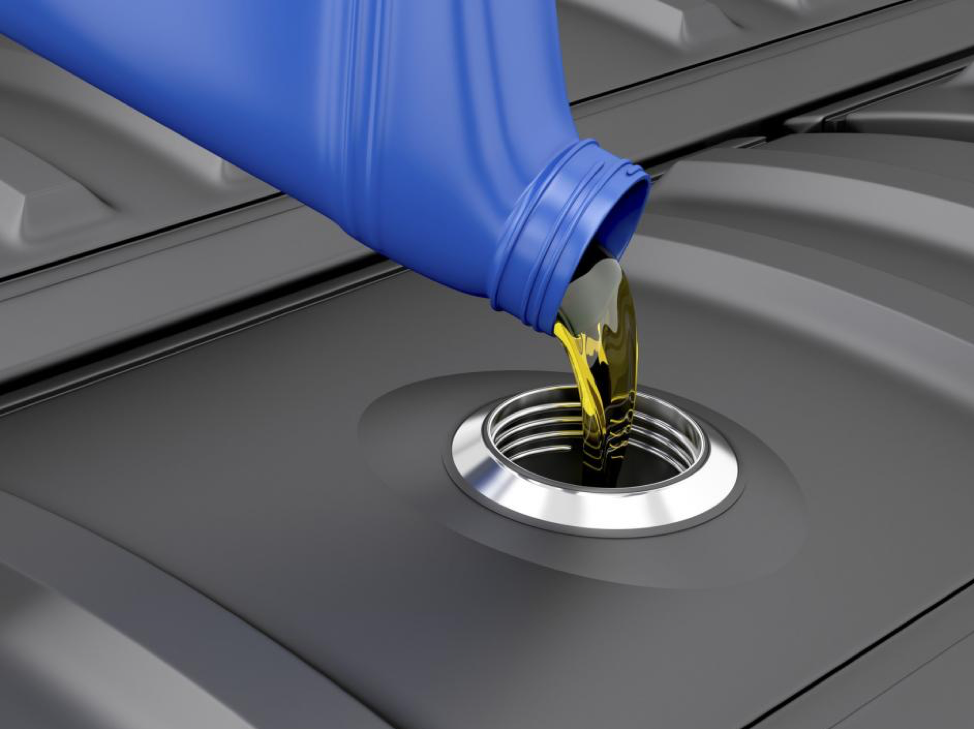Natural vs. Synthetic Motor Oil: Which One Should You Choose for Your Car
2019.12.17

Image of motor oil being poured into a car’s engine
The lifeblood of a car’s engine, engine oil keeps your vehicle in motion. Not only does the oil keep your vehicle’s engine running, but it also absorbs excess heat and cleans up harmful chemicals that may enter your car’s engine. However, the engine oil degrades after running for some time; this typically equals a few thousand miles of travel in your car after an oil change. The engine oil must be changed immediately after it starts to degrade.
Of all the maintenance work that your car needs, changing the engine oil is probably the most important. By spending a few hundred bucks on engine oil, you can protect your car’s engine from wear and tear, ensuring its long-term health and performance in the process.
The Importance of Choosing the Right Type of Engine Oil for Your Car
More important than a timely oil change is putting the right type of oil in your car’s engine. There are many repercussions of choosing the wrong engine oil for your car. These include, but not limited to, oil leaks, reduced mileage, a noisy engine, car not starting in cold weather, car burning oil, and damage to the engine.
So, what choices do you have when it comes to the types of engine oil, and how do you choose the right one for your car? There are two types of engine oil for your car: natural motor oil and synthetic motor oil. Since both of them have their pros and cons, it can get difficult to choose between them. However, knowing what each type of engine oil can do for your car will help you to make the right decision. Below are synthetic motor oil and natural motor oil compared.
How Synthetic Motor Oil and Natural Motor Oil are Produced
Synthetic oil is an artificial product that is produced by chemical compounds. The idea behind synthetic oil is creating a motor oil that has the best properties of natural oil and can be customized to meet the needs of the different types of car engines today.
A liquid fossil fuel that occurs naturally, natural motor oil is a motor oil that is extracted from crude oil and then purified. While there are not many risks associated with natural oil, it lasts for a lot less time than synthetic motor oil, can cause sludge buildup in your engine, and lead to issues in the performance of your car at extreme temperatures.
Choosing Between Synthetic Motor Oil and Natural Motor Oil: The Important Things to Consider
Most car owners do not care about how the motor oil for their car is produced. They only care about what difference the oil can make for their vehicle and rightfully so. In the end, how long an engine oil can keep a car running and prevent it from untimely breakdown is all that should matter to car owners.
A synthetic motor oil, such as Valvoline synthetic motor oil, is best suited for this purpose. Why is that? Because the useful life of synthetic motor oil is almost three times greater than conventional or natural motor oil. You will need 15-24 fewer quarts of oil each year if you choose synthetic motor oil over natural oil.
Additionally, synthetic motor oil keeps your engine cleaner than natural oil. The reason behind this is that synthetic motor oil is carefully produced in the lab to ensure it does not have many of the impurities that are found in natural oil. Since minimal debris or other impurities are collecting in your engine over time, your engine is protected from wear, which helps to prolong its health, performance, and useful life.
This does not happen with natural oil. As the oil degrades, the impurities in the oil start to collect in the engine, leaving behind harmful chemical deposits and sludge buildup. Another reason to choose a synthetic motor oil such as Valvoline synthetic motor oil over natural oil is that it does not break down as easily as the latter. This means that your car’s engine is protected from friction and wear & tear for a longer time with synthetic motor oil as compared to natural oil.
If we talk about cost, then changing synthetic motor oil can be costlier upfront than changing natural engine oil. While a synthetic motor oil change can cost you between $70 and $100, natural motor oil can be changed for under $50.
However, changing natural motor oil will cost you more than synthetic motor oil change in the long term. This is because the frequency with which synthetic motor oil, such as the Valvoline synthetic motor oil, needs to be changed in a year is almost three to four times less than the same for natural motor oil. This means that you can save a lot of money in the long term by making the switch from natural motor oil to synthetic motor oil.
The Winner?
Considering all the advantages that synthetic motor oil has over natural motor oil for your car, there can only be one winner—synthetic motor oil.
More Articles
Copyright © Fooyoh.com All rights reserved.